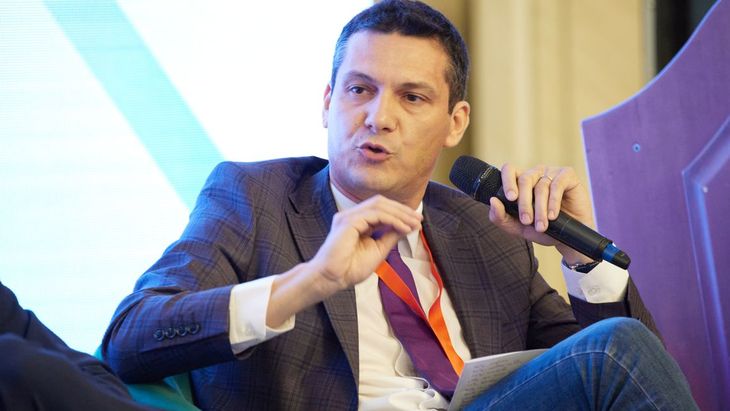The energy transition has already been taking place for more than 20 years, ever since Germany began to heavily subsidies its solar and wind installations, claimed Cristian Pîrvulescu, CEO of ENEVO Group, at the 9th edition of the Energy Strategy Summit, an event organized by Energynomics.
“The energy transition has already happened and it started in 2000 when the German lands started subsidizing large-scale renewable projects. The green revolution has already happened and we need to be aware of it. We already have a consistent production of renewable energy and that was a solution to the much-trumpeted crisis and the announced energy collapse that we went through with the war in Ukraine,” declared Pîrvulescu.
In 2022, after the start of the conflict in Ukraine, governments rushed to stockpile coal and restart power plants for fear of electricity shortages. However, only 18% of the capacity of coal-fired power plants brought back into operation was used, and nine such plants were not even restarted even once. At the same time, natural gas is the fuel that will determine the speed with which the energy transition will be achieved. Given the high volatility of the price, the intervention of states in the financing of some gas investments will probably also be needed.
According to Pîrvulescu, now is the time to establish measures aimed at activities downstream of renewable sources, namely more automation, because the energy market has become democratized and is no longer controlled by large utility companies. The new actors in the energy market are malls, agricultural producers, factories and industry, and their number will increase as more and more public institutions, residential complexes and buildings will be required to mount photovoltaic panels on their roofs.
“The energy deficit was not covered by classical sources, but by renewable energy, because in 2022 the European Union installed more wind turbines, heat pumps and photovoltaics than it did in its entire history. The conclusion is that the subsidies and the war accelerated the energy transition”, Pîrvulescu added.
But given that last year most of the production of wind and PV installations and related equipment was produced in China and the Asia-Pacific region, the discussion of energy transition and reindustrialization will also have to take into account these aspects. One of the solutions so that Europe does not become just a simple buyer of hardware from Asia would be the integration of China into Western economic chains.
“Maybe we should talk about a new market model. We reindustrialize through subsidies, that’s what everyone did, and that’s what encourages production. You can’t be competitive with someone who is already the market leader and we have to secure our supply chain as well. Humanity didn’t come out of the Stone Age because they ran out of stones, but because better technologies were invented. We are living in a historical moment that we must embrace”, concluded Pîrvulescu.
Energy Strategy Summit 2023 was organised by Energynomics with the support of ABB, ASTRASUN Solar, BCR, CEZ Romania, Eaton Electric, Electrica Furnizare, Electro Service RB, Elektra Renewable Support, EnergoBit, Enevo Group, E.ON, Finder, Huawei, MET România Energy, OMV Petrom, OX2 România, Phoenix Contact, Photomate, ProCredit Bank, REI Grup, Renomia Gallagher, Romgaz, Schneider Electric, Signify, Transelectrica, Taw Energy, Volt, WIKA, Wiren, Alexandrion Group, Aqua Carpatica, Klarmedia and Mobexpert.
